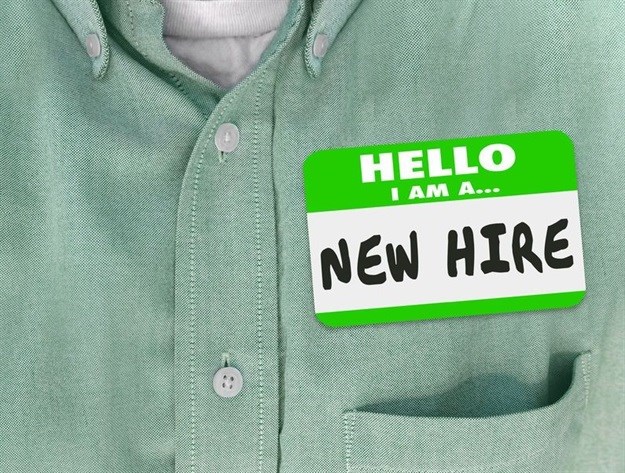
Top stories






More news

ESG & Sustainability
#AGES2026: How to back Africa's next-gen green and blue entrepreneurs


















Logistics & Transport
#Budget2026: Road freight logistics and what it means for consumers


Success starts with effective on-boarding: it’s the essential step every company or organisation must commit to if they want to build long-lasting relationships, by putting their best foot forward from the very first engagement. On-boarding sets the tone a business will hold with its workforce and consumers, so it’s imperative to get right.
On-boarding is basically the customer-service equivalent of a firm, welcoming handshake that instils customers and employees with confidence and goodwill towards a brand. It’s what businesses do to make people feel appreciated and valued from the outset: a function of slick marketing, and client-service excellence.
But what is it about on-boarding that makes it so critical for success?

Remember, as human beings we’re emotionally driven. If we’re treated like we’re just another number, just another spoke-in-the-wheel, or just another opportunity to make a quick buck, we don’t like it. Customers and employees need to feel respected, appreciated, and heard before they invest emotionally. And once invested emotionally, they’ll invest their time and their resources with confidence.
This makes the process of on-boarding a strategic action that innovative businesses should view as a “must-have” if they want to come out on top in a very competitive climate. Businesses that are able to craft a relevant, engaging journey to get people from A to B - whether it’s the accelerated development of professional skills and performance of new employees, or services that take the hassle out of the lives of consumers – will win.
Key to on-boarding are the resources and tools that organisations must have in their armoury to deliver knowledge programmes, mentoring structures, technology platforms, and training.
In the workplace, the combined aim of these multi-platform (and multi-touch-point) elements should be to fast-track individuals to a point of mastery and autonomy, where they experience a firm sense of purpose that ultimately translates as job satisfaction. For customers and clients, the aim is to maintain (and increase) customer satisfaction.
Research suggests that although new-hires may initially be enticed by high salaries and benefits, over the long term they’ll stay the course even if financial compensation becomes less frequent. In our current South African context, successful organisations are those who have created other incentives for people to remain committed; motivated by the company culture they enjoy amongst their colleagues and management.
Successful employee on-boarding initiatives are highly effective in ensuring staff retention. Staff who benefit from increased opportunities for growth, self-improvement, and self-actualisation, will ride the waves of change within an uncertain business climate and remain firm proponents of a brand, devoted to the highest level of customer service. It’s an interesting dynamic where engaged employees have the ability to create a sincerely positive brand experience for customers as well. Human resource departments that focus on developing opportunities for positive engagement between a business and its employees, are those able to retain the best talent longer.
Similarly, marketing should deliver effective customer on-boarding programmes that incorporate client-focused engagement platforms – including mobile, call-centre or even self-service opportunities – to anticipate and fulfil consumer needs.
However, effective on-boarding should not only be seen as the responsibility of the human resources and marketing portfolios alone.
On-boarding is in fact a discipline that should be driven from the top of any organisation, and across every department. It is the domain of leadership and senior management. After all, the bottom-line productivity and effectiveness of business units will be most impacted by individuals who are not motivated to be team-players, or don’t share a common vision of success.
So, what should management consider in delivering effective on-boarding experiences?
First impressions count: The on-boarding process is the first impression anyone will have of a business, so make sure yours is relevant and slick. Listen to the feedback of your workforce and of your customers to understand their real needs, and not simply their perceived needs. Aim to knock their socks off!
Out of ‘site’, but not out of mind: In today’s mobile universe, employees and customers can operate in the ether. They don’t need to be brick-and-mortar bound. A solid on-boarding process must not be restricted by geographical location – so use digital technology for reach.
On-boarding is far more than orientation: On-boarding should be a longer-term, immersive experience that aims to maintain excitement and engagement over a 6 -12 month period for the best results. International research reports that engagement tends to decline after the first 6 months, so keep momentum going as long as possible to reap optimum retention benefits.
Make it ‘appen: The creative use of technology to engage the market through cleverly designed on-boarding apps, and bespoke digital content can be informative, supportive, and provide great platforms for employee and customer feedback. And don’t forget the value of treating your employees like customers – invest as much effort in their products as you do for your paying clients.
When on-boarding is executed with conviction and commitment, the ROI for organisations is significant: talent development is accelerated, there’s less absenteeism, higher retention and a more productive and innovative workforce. As engagement increases, so does customer retention…and even consumer spend.
You see, we’re emotional creatures. And if we feel part of a winning brand, we’re hooked!